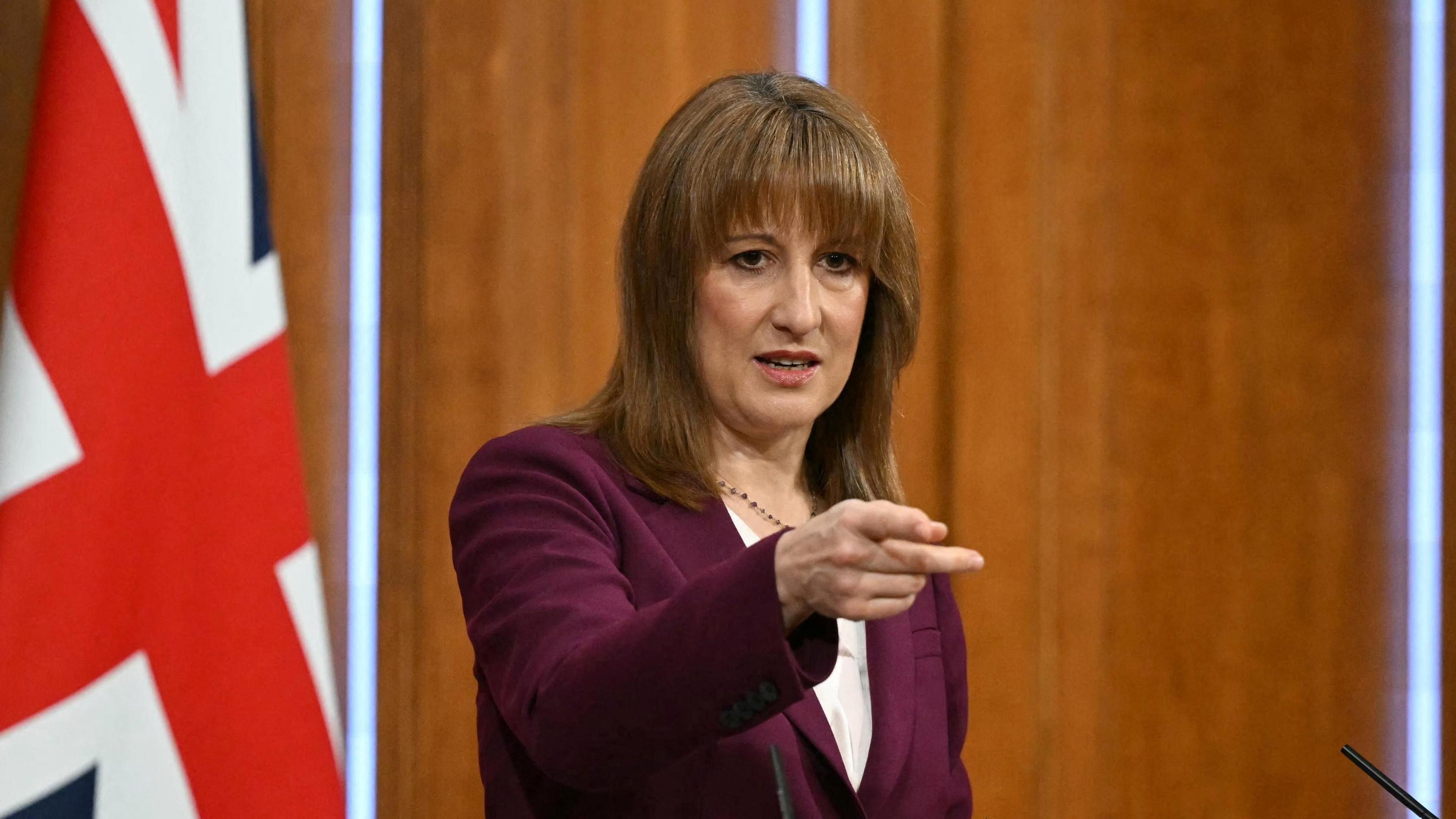No 10 denies Reeves misled public in run-up to Budget

- Published
Downing Street has denied Chancellor Rachel Reeves misled the public about the state of the public finances in the run-up to this week's Budget.
There were warnings ahead of the Budget that Reeves could face as much as a £20bn gap in meeting her rule of not borrowing for day-to-day spending.
But in a letter to MPs, the chairman of the Office for Budget Responsibility (OBR) said he had told the chancellor in mid-September the gap would be much smaller.
The Conservatives have accused Reeves of giving an overly pessimistic impression of the public finances as a "smokescreen" to raise taxes.
Tory leader Kemi Badenoch said the letter showed Reeves had "lied to the public" and should be sacked.
The weeks leading up to the Budget were dominated by speculation the chancellor would increase the rates of income tax, breaking a Labour manifesto pledge.
On 4 November, Reeves used a rare pre-Budget speech in Downing Street to warn the UK's productivity was weaker "than previously thought" and that "has consequences for the public finances too, in lower tax receipts."
Then, on 10 November, she told BBC Radio 5 Live: "It would, of course be possible to stick with the manifesto commitments, but that would require things like deep cuts in capital spending."
These comments, along with her speech, fuelled speculation she needed to raise significant sums to meet her fiscal rules.
However, the Office for Budget Responsibility has now confirmed that although it did indeed downgrade productivity, it also predicted this would be "offset" by higher wages increasing the government's tax revenues.
That meant she had a surplus to meet both of her fiscal rules.
In a letter to the Commons Treasury select committee, external, OBR chairman Richard Hughes revealed that he told the chancellor on 17 September that the public finances were in better shape than widely thought.
The letter also reveals that on the 31 October the OBR the Treasury it was on course to meet both of the chancellor's fiscal rules.
Budget 2025
What the Budget means for you and your money
- Published2 days ago
How the chancellor just took a chunk out of your future pay
- Published1 day ago
Key points from the Budget at a glance
- Published1 day ago
But Reeves continued to indicate that she was likely to increase income tax rates.
In her Downing Street press conference, she said: "It is already clear that the productivity performance…is weaker than previously thought."
She added: "What I want people to understand ahead of that Budget, is the circumstances we face."
However, the Treasury then backed away from increasing income tax rates, with government sources claiming this was because of better than expected forecasts from the OBR.
It has now emerged the OBR forecasts did not change significantly in the run up to the Budget.
Conservative shadow chancellor Sir Mel Stride said that while Reeves had repeatedly talked about the productivity downgrade, she had "failed to mention" the offsetting effect of higher wages on the forecast.
He added: "It was all a smokescreen. Labour knew all along that they did not need to raise taxes and break their promises.
"It appears the country was deliberately misled to try to explain away Labour's decision to spend billions more on welfare."
Asked whether Reeves had misled the public and the financial markets, the PM's spokesperson said: "I don't accept that."
He added: "As she [Reeves] set out in the speech that she gave here (Downing Street), she talked about the challenges the country was facing and she set out her decisions incredibly clearly at the Budget."
He added the government had increased the headroom for the Treasury to meet the fiscal rules, which would creates "certainty and stability for business".

Sign up for our Politics Essential newsletter to keep up with the inner workings of Westminster and beyond.